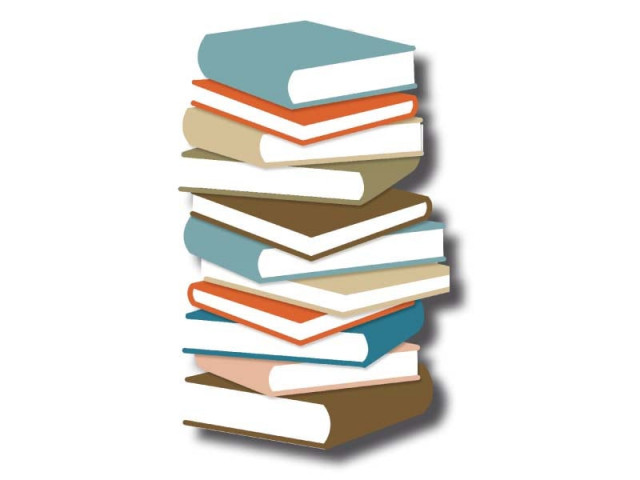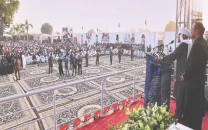New buses but education remains immobile
No new teachers recruited to plug gaps while daily wagers remain marginalised

The year started on a good note after former prime minister Nawaz Sharif distributed 30 new buses to schools of the capital. However, as Nawaz was mired in political controversy eventually leading to his judicial ouster, his programme to overhaul schools and colleges of the capital — Prime Minister’s Education Reforms Programme slowed down after the government failed to release funds.
The political instability affected the education sector as the rehabilitation of educational institution under the Prime Minister’s Education Reforms Programme delayed due to non-release of funds.
After the initial tranche of buses, 40 more buses were provided to public schools and colleges — including some which have ramps for wheelchairs — with officials stating that 130 more buses are scheduled to arrive this year.
These buses were fitted with a School Bus Satellite Tracking System which allows officials and school principals to monitor the movement of these buses.
During the three-week sit-in by Tehreek Labbaik Ya Rasool Allah (TLYR) at the Faizabad Interchange, some of these buses got stuck in the massive rush in the city but officials used the system to guide them to safety.
The reforms programme had renovated 23 school buses in its first phase in 2016. A further 200 were to be overhauled together with the addition of new classrooms and other facilities at the 422 schools and colleges under the second phase of the programme.
Even though the second phase was supposed to have been completed by December, the programme missed its deadline after the government failed to release the budget funds.
Even though the work slowed down, 226 new computer labs were established in girls’ schools and colleges of the capital while around 3,650 teachers and principals were trained.
Wave of Disappointment
Disappointment and frustration swept the capital’s teaching community. While the government started overhauling school infrastructure, it failed to announce anything for teachers or focus on new recruits to plug gaps. They argued how both Punjab and Khyber-Pakhtunkhwa had introduced speedy promotion formula for teachers in 2012 but the federal education department was still following the old, slow-paced, promotion structure.
Officials said that recruitment and promotion rules were being revised and inputs from various ministries were being taken.
The solitary silver lining was that Alif Ailaan noted that the capital still had the best education record for public schools in the country.
Ad hocisim prevails
Lack of recruitments caused a shortage of teachers since the daily wagers — hired as a stop-gap arrangement — continued to be treated as a pariah with their regularisation demands ignored.
This caused an unrest in the educational institutions where these daily wagers were deputed since they continued to work without salaries.
Their hopes were shattered when in November the Islamabad High Court declared that all daily-wage staffers — who had been appointed at government schools and colleges in the capital without following due procedure and observing principles of transparency — as illegal, void and tantamount to misconduct on part of the appointing authority.
However, daily-wage staffers — who had been appointed through a transparent recruitment process and have been demanding their regularisation in basic pay scale grade 1 to 15 —were ordered to be scrutinised by their respective departments.
The teachers, though, have appealed against the decision.
The longstanding issue of regularising the nearly 2,000 daily wage and contractual teaching and non-teaching staff in the capital has been lingering for years. Despite having gone through several rounds of discussion in various parliamentary committees and even debated on the floor of parliament, little had been done to resolve their grievances.
Fee hikes
As the matter of fee determination rules by the regulator of private schools remained pending in courts, private schools continued to raise fee without any check. According to Peira and reports from parents, private schools had increased their fees by as much as 20 to 30 per cent in 2016, following it up with a 20 to 40 per cent hike in 2017.
Published in The Express Tribune, January 2nd, 2018.



















COMMENTS
Comments are moderated and generally will be posted if they are on-topic and not abusive.
For more information, please see our Comments FAQ